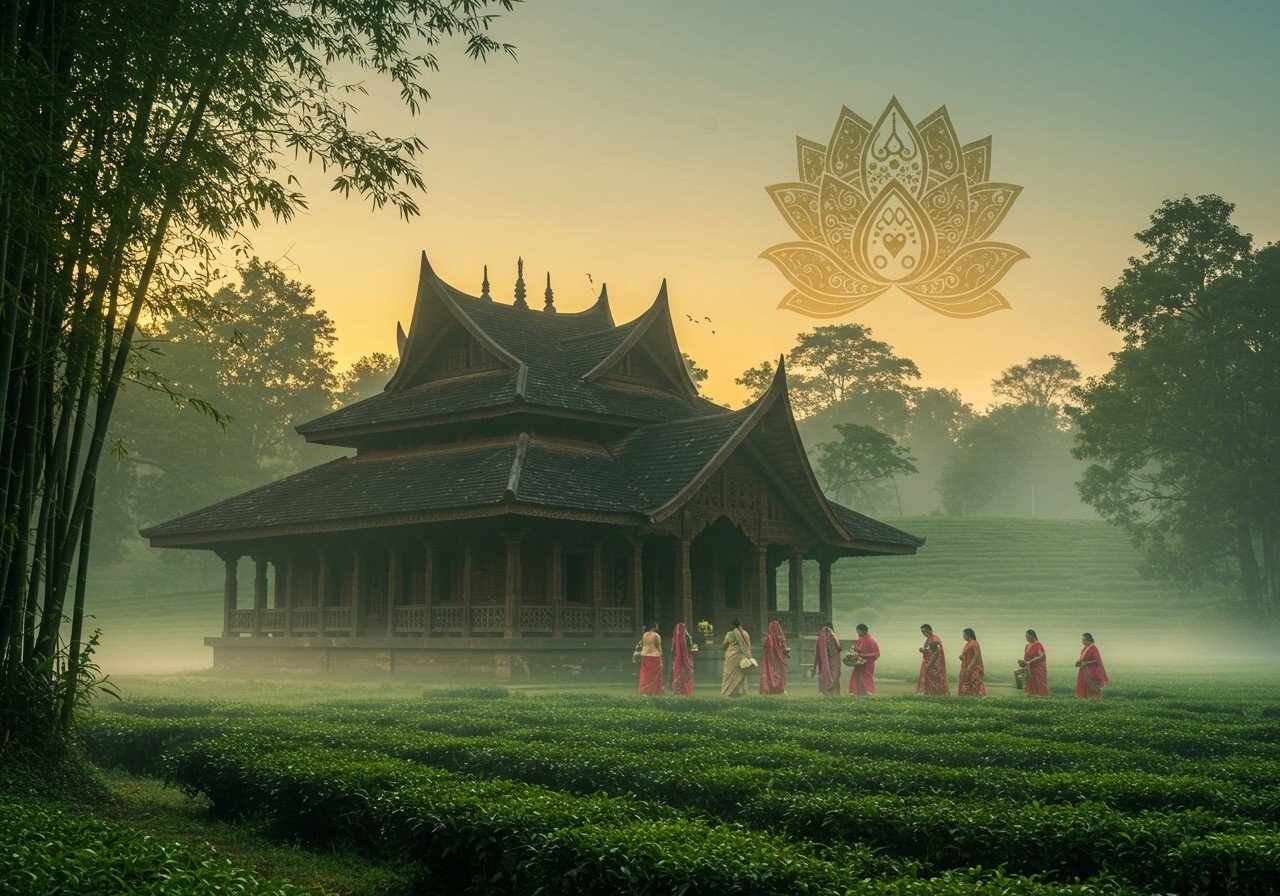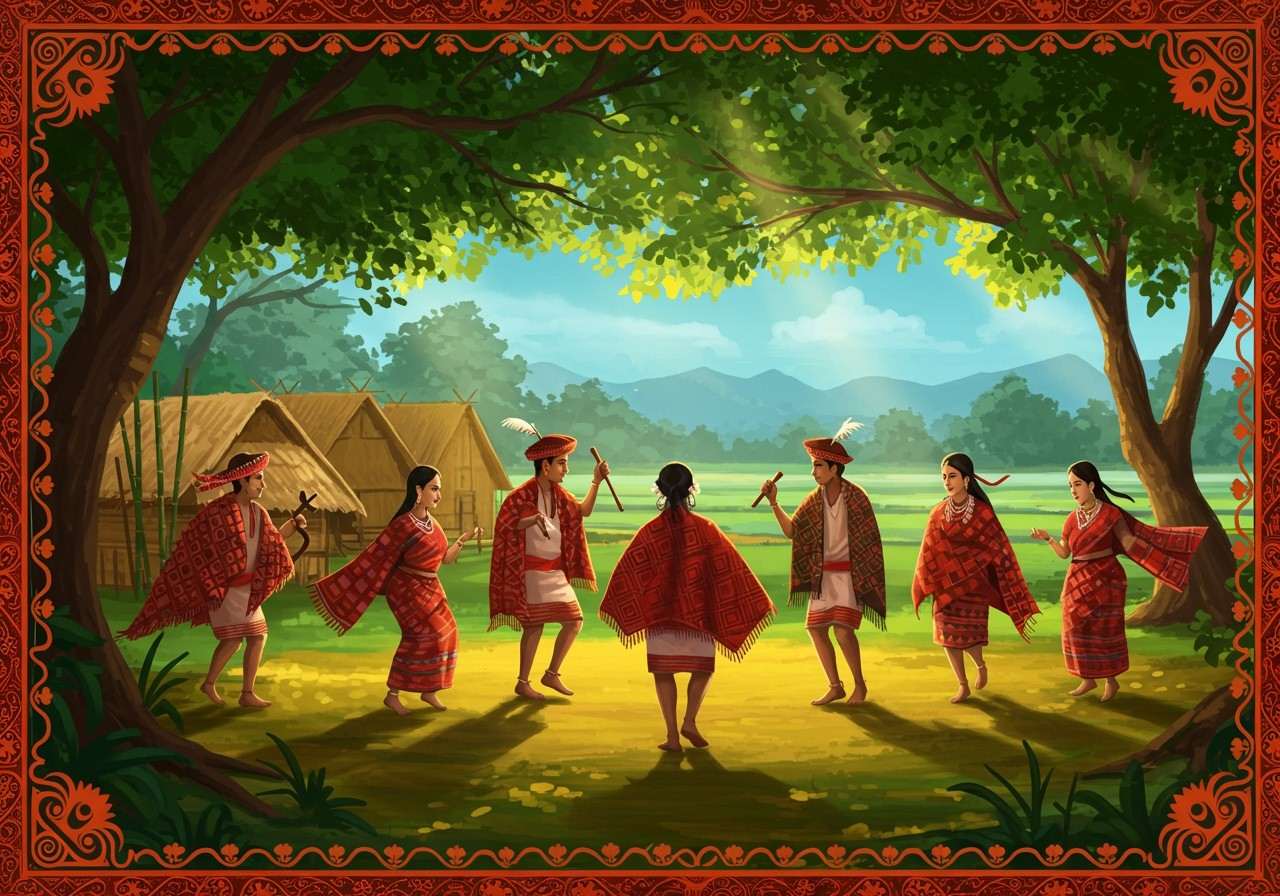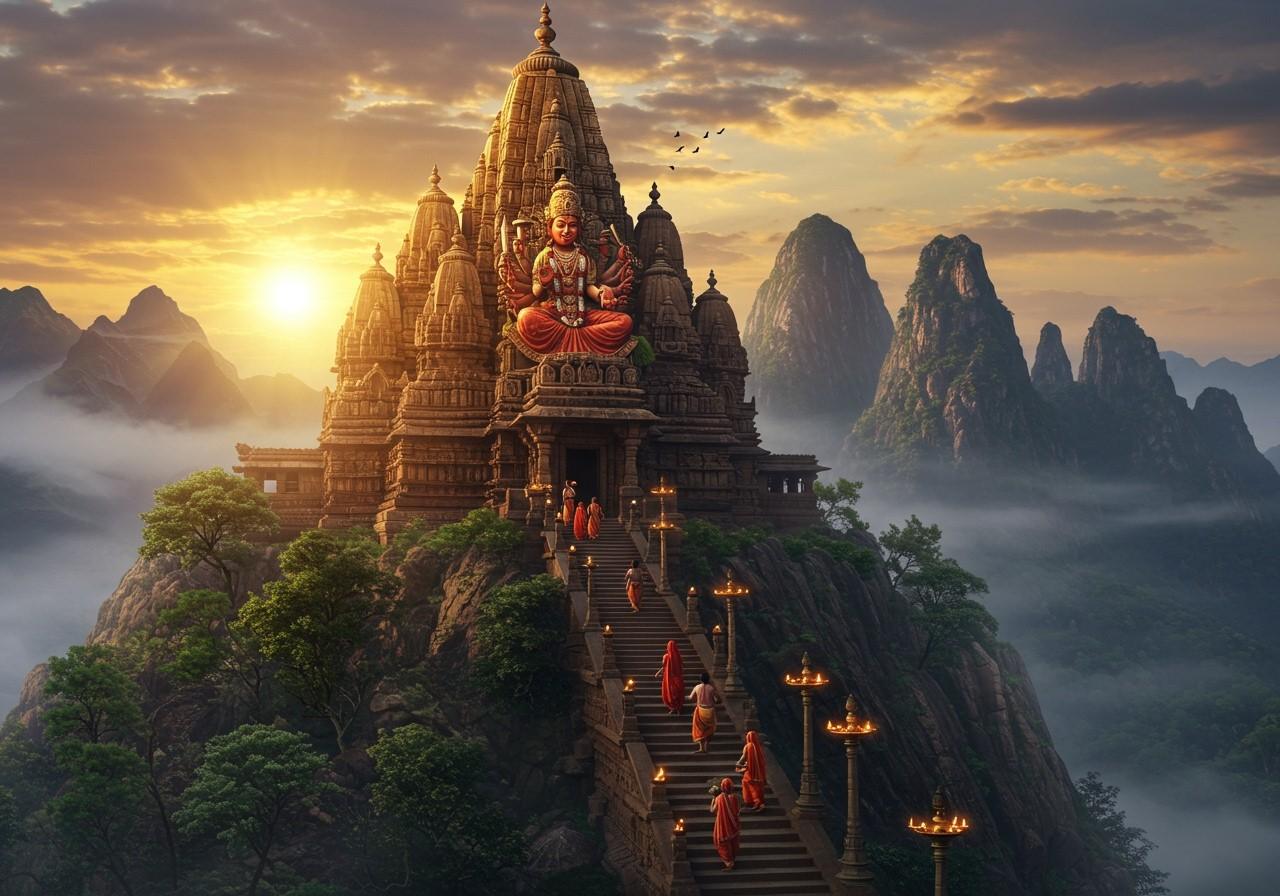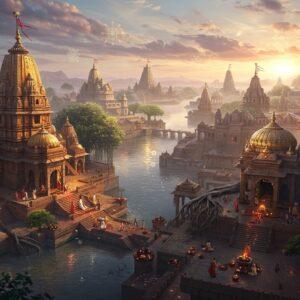

India is not just a country; it’s a beautiful collection of stories, traditions, and cultures, each one as unique as a flower in a vast garden. In the lush green hills of Assam, one such beautiful story unfolds – the story of the Karbi people, also known as Arleng. Let’s take a heartfelt journey to understand their world, a world rich with history, vibrant customs, and a deep connection to their roots.
A Journey into the Past: The History of the Karbi People
The history of the Karbi community isn’t found in dusty old books but is alive in the melodies of their narrative songs. These songs, passed down from one generation to the next, tell tales of their ancestors, their great migrations, and their spirit. It is believed that the Karbis once lived along the banks of the Kalang and Kapili rivers, a land that now includes the famous Kaziranga area. History tells us they were pushed into the hills during the reign of the Kachari kingdom, where they carved out a new life, preserving their identity with immense pride.
The Soul of Karbi Life: Culture and Society
The culture of the Karbi people is a beautiful blend of traditions that govern their society and daily life. It’s what makes them truly unique.
A Society Built on Clans and Kinship
The Karbi society is patrilineal, meaning family lineage is traced through the father’s side. It is structured around five main clans or ‘Kur’: Engti, Terang, Timung, Teron, and Ronghang. These clans are not just names; they are the foundation of their social fabric. A very important rule is that marriage within the same clan is not allowed, which helps in fostering bonds between different clans. They often prefer cross-cousin marriages, a tradition that has strengthened their community for centuries.
Language and Governance
The primary language spoken is Karbi, a beautiful tongue that carries their oral history. While many also speak Assamese, their native language remains the heart of their communication. One might wonder how their communities are managed. Their traditional governance is a fascinating system, handled by village councils called ‘ME,’ which consist of respected male elders led by a village headman, the Gaonbura or Sarthe. This system ensures that decisions are made with collective wisdom and for the community’s welfare.
Faith and Beliefs: The Spiritual World of the Karbi

The spiritual beliefs of the Karbi people are deeply intertwined with nature and their ancestors. Many follow Animism, a faith that sees a spiritual essence in all things. They do not have idols or temples in the conventional sense. Instead, they worship spirits of specific places, known as ‘Longri Arnam.’ Their belief system revolves around ancestor worship and honouring household and territorial deities, with Hemphu and Mukrang being central figures. They believe in reincarnation, adding a profound layer to their respect for life and their ancestors.
While their forms of worship are unique, the essence of devotion is universal. Creating a sacred space, even with simple, pure items, holds deep meaning. For those moments of prayer in your own home, using authentic items like a pure brass pooja bowl can enhance the spiritual atmosphere.
Artistry in Their Hands: Karbi Arts and Crafts
The Karbi people are gifted artisans, their hands creating magic from simple, natural materials. They are masters of working with wood, bamboo, cotton, and cane, transforming them into beautiful handicrafts. Their traditional clothes are a feast for the eyes, adorned with vibrant colours and intricate embroidery that tells a story of their culture. This love for handcrafted purity is something we at poojn.in deeply respect. It’s why we bring you authentic, handmade items like this beautiful mitti ke dhuno pot (dhoop dani), perfect for creating a sacred and fragrant ambience in your home.
The Rhythm of Life: Music, Dance, and Festivals
For the Karbi community, music and dance are not just entertainment; they are the rhythm of their life. You might ask what their key festivals are. One of the most significant is the Karbi Youth Festival, held annually near Diphu. It’s a grand celebration of their folk culture, art, and talent, and one of India’s oldest ethnic festivals.
Another important community festival is Rongker. This is performed at the beginning of the year to seek blessings for the well-being of the entire village and to protect it from harm. These festivals are celebrated with traditional dances, soulful songs sung by experts, and a wonderful spirit of togetherness that truly defines the Karbi people.
Exploring such diverse cultures is a journey in itself. Just as the Karbi celebrate their unique heritage, other regions too have their spiritual hearts, like the revered Dhekiakhowa Bornamghar in Assam, which holds its own stories of faith and devotion.
Preserving a Precious Heritage for Tomorrow
In today’s fast-changing world, the Karbi community faces the challenge of keeping its ancient heritage alive. But with great determination, local organisations and the youth are working to promote their art, culture, and traditions. Education is empowering the new generation to embrace their roots while adapting to modern times, ensuring that the beautiful story of the Karbi people will be told for many more generations to come.
At poojn.in, we feel a deep connection to this cause. We believe that by making authentic ritual and cultural items accessible, we help families across India stay connected to their traditions. From a simple brass pooja plate to intricate festive decor, every product we offer is a celebration of India’s incredible cultural diversity.


